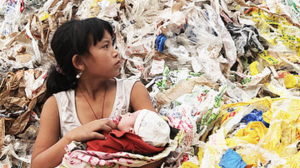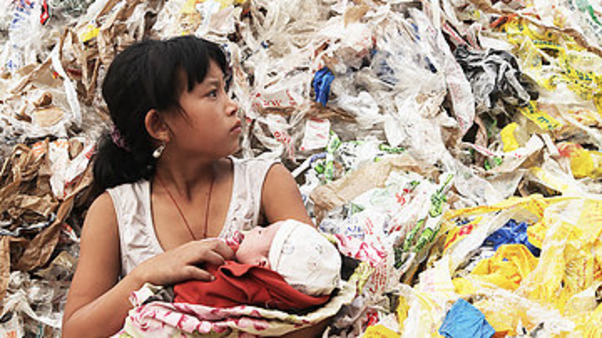
We live in a world where we outsource and externalize problems of waste and pollution onto marginalized populations and geographies. The documentary Plastic China peels back the layers that hide how the western world’s waste is managed, and shows how waste that leaves your house is in effect, part of global, race-to-the-bottom processes. The director Jiu-Liang Wang ingeniously weaves the story of plastic into the story of a Yi-Jie’s family, who recycle plastic in a backyard operation in a suburb of Beijing. The film evolves around the 11 year old girl Yi-Jie, who lives here life taking care of siblings and helping parents out as they sort through plastic trash, Yi-Jie is not able to go to school, but instead is subjected to a life in the trash heap. This film is a stark expose of how this emergent culture of waste impacts the children, and the repercussions this plastic-centered lifestyle has on the community and the parent’s livelihoods and sense-of-self. Normalizing the continual production of plastic waste means that certain populations grow up surrounded by it; continually breath in the pollutants of melted plastics; eat the fish and produce from contaminated rivers and lands; work and play in environments with overlapping chemical concentrations; have heightened potential to contract cancers at an early age; etc. This is not a condition we should expect people to live in for the sake of convenient plastic-packaged materials. The lack of value for materials in the throw-away commodities culture is synonymous with the lack of value placed on global environments and populations. We are all connected, there is no away for us to throw these things. We need to find a better way to be human and live on this planet together.

